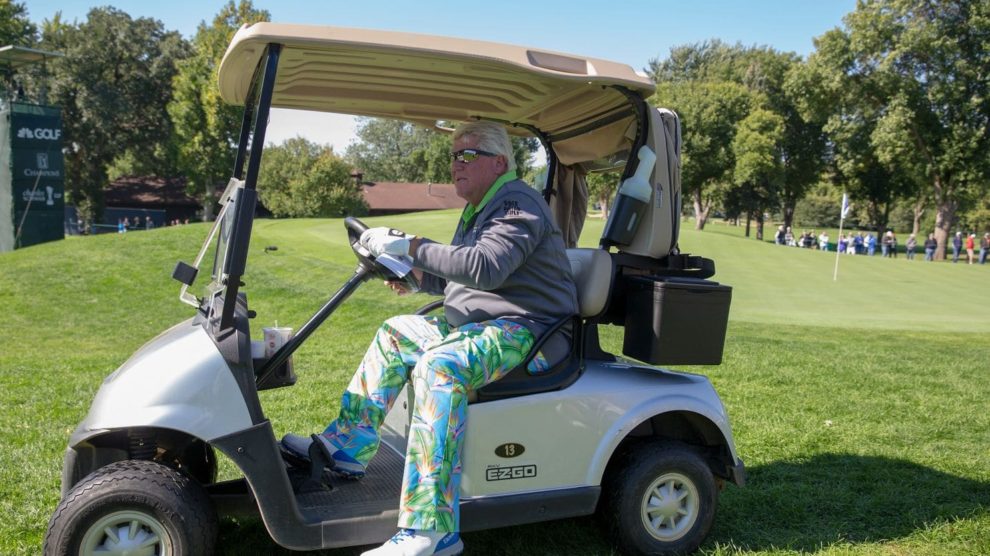Sometimes, golfers that like to play at a normal pace -- or a quicker pace -- get paired to play with a slow golfer. Or they might find themselves playing on a golf course on a day where the pace of play is exceptionally slow.
No golfer has ever said they enjoy a five-hour or six-hour round of golf, but there are plenty of golfers who find themselves stuck in one. Typically, golfers don't assume their round is going to go that slowly or that they'll be put together with someone who play golf at a glacial pace. It comes as a bit of a surprise, and golfers tend to realize the pace of play is going to be an issue after at least a hole or two of playing the round.
Golfers need coping strategies when they face playing with a slow golfer or on a course where there's a bad flow to the pace of play.
5 tips to deal with slow play and slow pace of play on the golf course
1. Play slower yourself: The reality is that slow golfers don't play faster. Almost always, the faster golfer has to adapt to the tortoise-like pace out there. Faster golfers, then, have to be quite deliberate when playing with slower golfers or on a slow day on the course. If you're walking, walk slower. If you're riding, take a leisurely stroll around the cart paths. Don't feel the need to get ready for your shot as soon as you get to the ball. The key is knowing that it's going to be a lot longer between shots, so locking in and zonking out are big skills.
2. Grab some drinks and food: If you're going to have to wait on every single shot, you may as well enjoy yourself. Flag down the beverage cart and grab some drinks and a couple of snacks, and just chit chat between shots. The rhythm of your round is going to be terrible, so you may as well have a good time doing something else.
3. Call the pro shop: At this point, if the first two strategies aren't working, now it might be time for an escalation. No one likes a narc, but there are lots of golf courses that either don't know their pace is slow or don't care enough to do anything about it until someone is annoying about it. Call the pro shop and explain the situation. They'll either send out somebody or have a ranger drive around to the slow groups in question. Depending on how badly the ranger wants to boss some people around, this might solve the problem if the slow player isn't in your group. If they are? Tough scene.
4. Playing two balls: If things aren't getting any better out there, and you have the time to do this, why not get two rounds for the price (and pace) of one? Throw down a second ball or some or all shots. Player B always does better anyhow, right? At least this way you are still engaged in golf and trying to hit quality golf shots instead of stewing about all the time you're spending not playing actual golf.
5. Walk off the golf course and go home: Sometimes, the best option to dealing with slow golf is to stop playing golf. I once went to an area golf course to play an 18-hole round, expecting somewhere between four-and-a-half or five hours for the round. Instead, we finished the front nine in three hours and 15 minutes. That's bonkers. I knew I had somewhere to be in two-and-a-half hours, so there was no way that I could finish the round. I walked off after nine and went into the pro shop to explain the situation. The guy behind the counter acknowledged that was really bad and gave me a rain check to come back and play all 18 again. He didn't have to do that, but golfers get it.
Things I would not recommend doing: telling off your slow playing partner, hitting into the group in front of you to "send a message," starting some kind of physical altercation, getting mind-numbingly drunk.

